Virgin Galactic has successfully taken its first passengers to space, including its billionaire founder Richard Branson. The event, at Spaceport America in New Mexico, was a field day for press and employees, complete with an early-morning Khalid set and hero walk by Branson and the crew.
“Just imagine a world where people of all ages, all backgrounds, from anywhere, of any gender, of any ethnicity, have equal access to space,” Branson said on returning. “Welcome to the dawn of a new space age!”
The remark is a bit premature, of course — that world is still some distance off, but it’s true that this flight marks a historic moment in the nascent space tourism industry. At present, leisurenauts are still an elite class, but the events of the day suggest we’re closer than ever to seeing that change.
After an incredibly early start to the day (shuttles to the Spaceport left at 2:45 AM from nearby Las Cruces), the festivities began in true space launch style with a delay. A thunderstorm overnight prevented the team from rolling out the spacecraft, which believe it or not can’t get wet. At the speeds and temperatures involved nothing can be left to chance — like ice forming from water in or on the chassis.
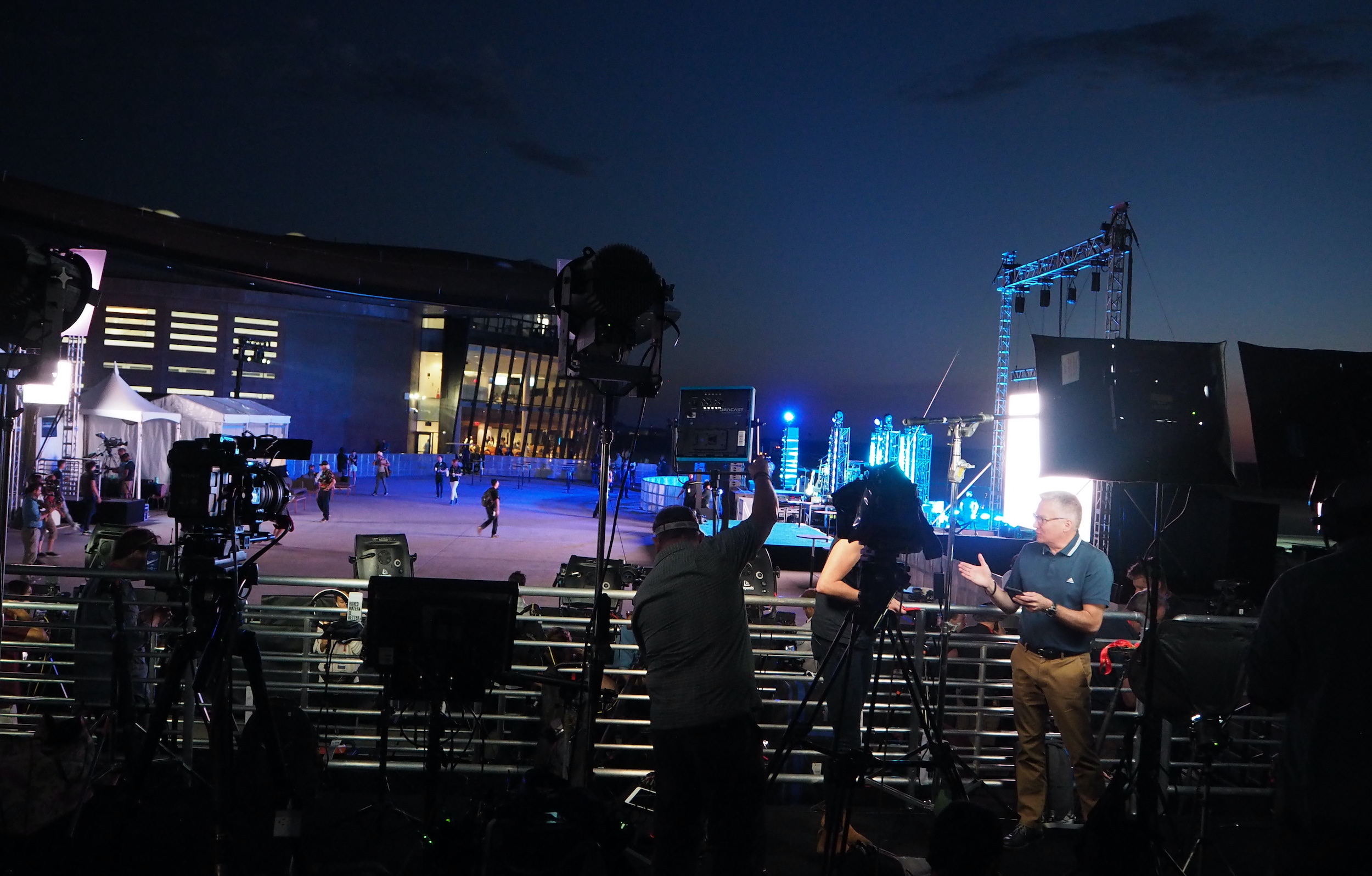
Soon the sun rose and crowds arrived: VIPs, employees, a bunch of local students, and Branson’s own guest list (reportedly numbering around 150). Elon Musk showed up as well, presumably to congratulate his fellow spaceman personally, billionaire to billionaire.
At 8:30 local time the engines started on VMS Eve, the “mothership” carrying VSS Unity, the rocket-powered spaceplane that Branson, along with Virgin Galactic’s Beth Moses (her second flight), Sirisha Bandla, and Colin Bennett, would ride to the edge of space.

Eve was wheels up at 8:40, commencing a wait on the ground while it climbed to about 36,000 feet. Unity detached and began its rocket-powered climb at about 9:24, reaching Mach 3 and after two minutes reached its peak altitude of about 282,000 feet — about 53 miles, as planned.
The crew and passengers enjoyed a minute or two of microgravity, which they seem to have employed gainfully:
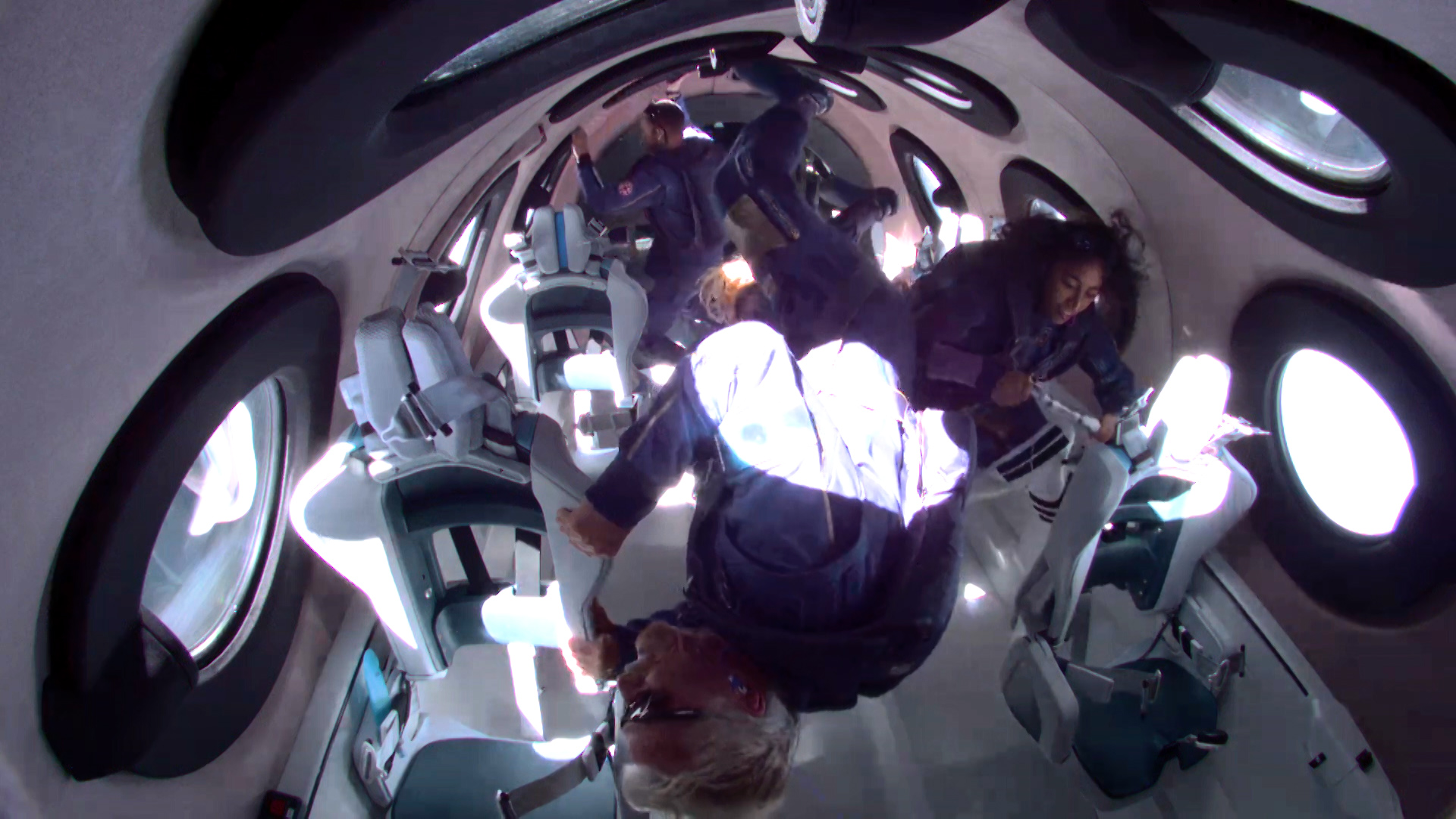
A planned mid-air speech by Branson proved impossible as the signal cut in and out, but the craft itself proved more reliable, touching down at 9:38.
In a celebratory stage appearance (following a brief Khalid concert) Branson expanded on the ideas cut short in transmission, beginning with: “It’s hot, I’m sorry,” but quickly moving on to more inspiring words. “I have dreamt about this moment since I was a child, but nothing could have prepared me for the view of Earth from space. We are at the vanguard of a new space age.”
At a press conference following shortly after, Branson fielded questions from elementary schoolers, and the crew described the view from space and whether they saw any planets. (No, just an alien that the pilot shook off during descent, Branson said. At least one kid I saw believed him.)
A long road to space
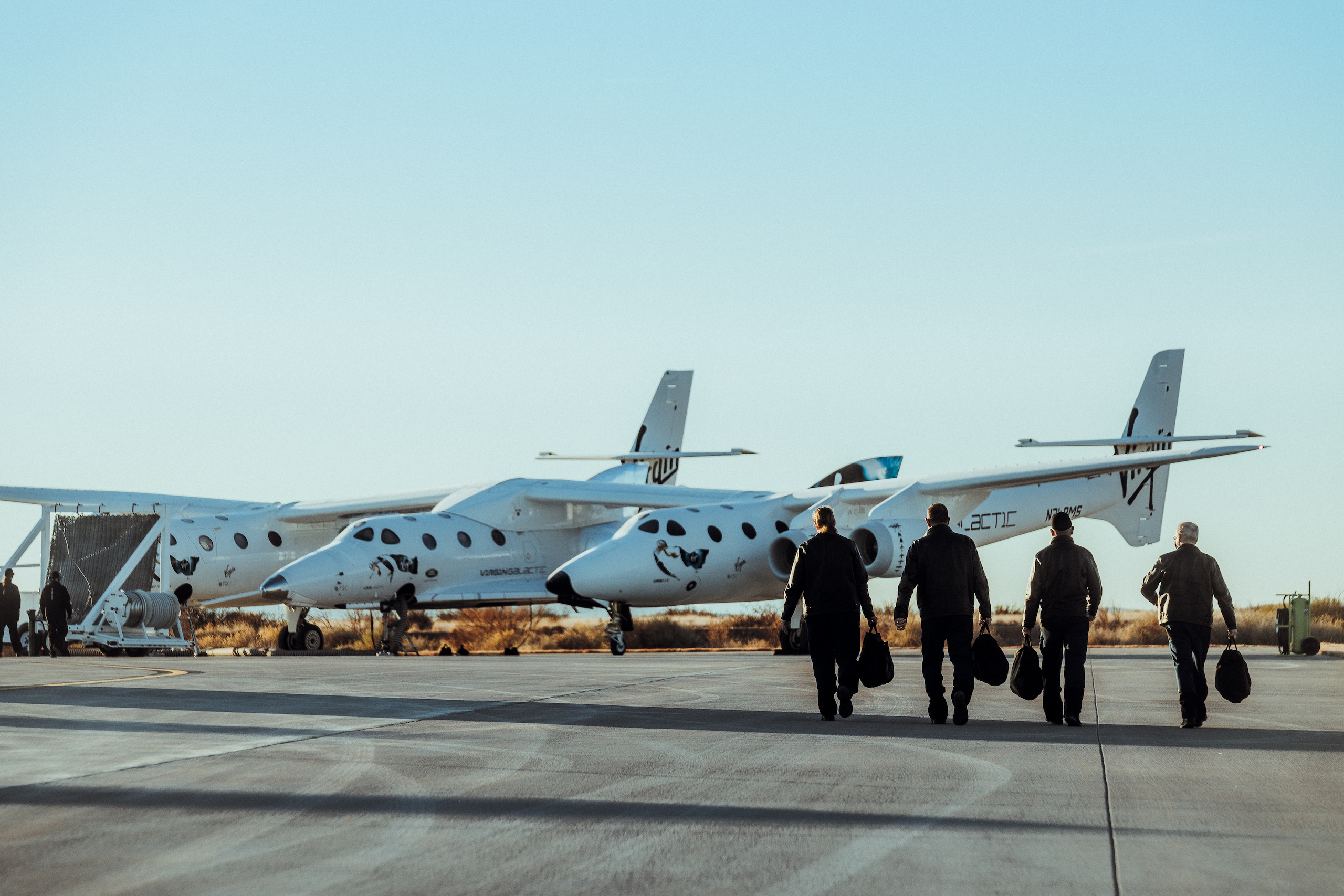
It’s a triumph long in the making for Virgin Galactic and Branson. The company was ahead of the curve in its space tourism ambitions, but in 2014 a test flight ended in a horrific crash and the death of one of the pilots.
Virgin’s engineers and leaders worked through it, however, and built a stronger, better spacecraft which was christened Unity by Stephen Hawking, who was then still living — and, not surprisingly, hoping to hitch a ride someday.
Pilots flew test flight after test flight over the years, slowly ratcheting up the power and finally, in 2018, touching the edge of space. On that note there is some slight controversy in that the exact altitude where the atmosphere gives way to space isn’t completely agreed upon. Some authorities place the Kármán line, as the imaginary boundary is called, at 100 kilometers above sea level, others at 50 miles, or about 80 kilometers.
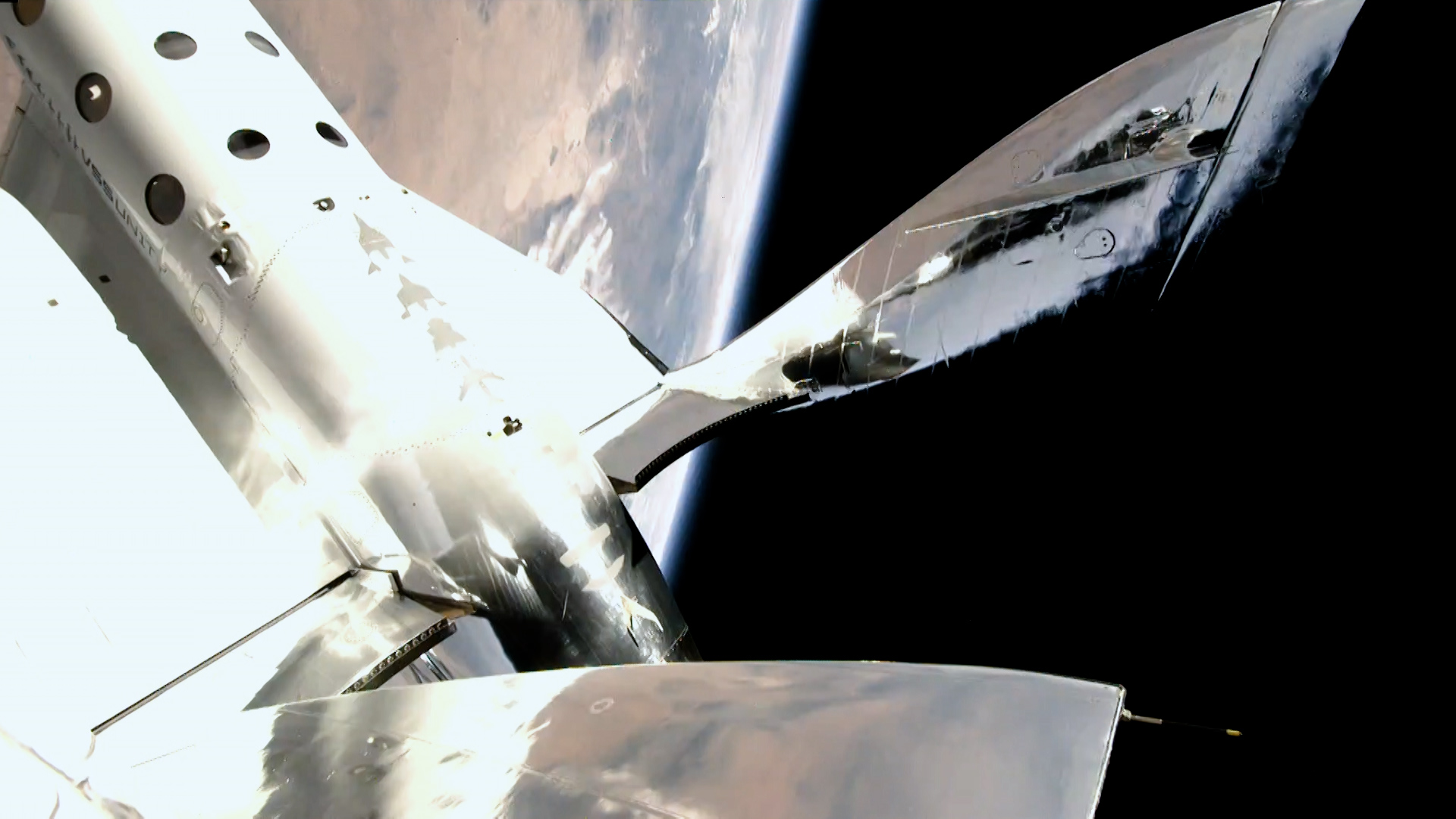
Virgin uses the lower estimate, while its arch rival, Jeff Bezos’s Blue Origin, uses the higher. This led Bezos to throw shade on Virgin’s flights, saying he didn’t want his customers to have an “asterisk” on their trip to space. When I asked about this before, a Virgin representative said they use the same standard that NASA and the U.S. Air Force does: pilots are given their “astronaut wings” if they pass the 50-mile mark.
Kármán quibbles aside, the race to send passengers to space has been heating up lately, and Bezos recently announced that he would be flying aboard the first crewed launch of Blue Origin’s New Shepard rocket on July 22 — with his brother, a mystery passenger who has paid $28M for the privilege, and Wally Funk, among the first women trained to be astronauts in 1961 but who never made it to space.
But Branson rained on his parade by announcing shortly afterward that he would fly aboard Virgin’s first passenger launch to space (crew and pilots have been up several times) about a week earlier.
Branson aims to beat Bezos to orbit in final stretch of billionaire space race
While Branson has good-naturedly denied any competition between himself and Bezos (“We wish Jeff the absolute best,” he said, adding that Bezos sent over a message of goodwill before the flight) it’s hard to believe that’s completely true. Though neither man has anything to prove at this point, there must surely be some satisfaction in Branson’s not merely going to space (a lifelong dream, as he tells it) but doing so before his upstart rival. However much he denies it, the narrative is too tempting to quash completely.
The direction forward for Virgin Galactic now is, clearly, towards paying customers, of which there are plenty lined up. Of course, they all have a quarter of a million dollars to spare, but you might not, and for you Branson has a special offer. They’ve partnered with Omaze, and donations to the chosen charity will enter you into a raffle of sorts, with the winner receiving two tickets on an upcoming Virgin Galactic flight. “And with my Willy Wonka hat on, a guided tour of Spaceport America, given by yours truly,” Branson added.
Branson expressed hope that this would become an ongoing thing as long as donations continue, so perhaps this is the answer to the question of how they hope to, as he so frequently promises, make space available to everyone.
You can watch the whole day unfold as it happened in Virgin Galactic’s archived livestream below:
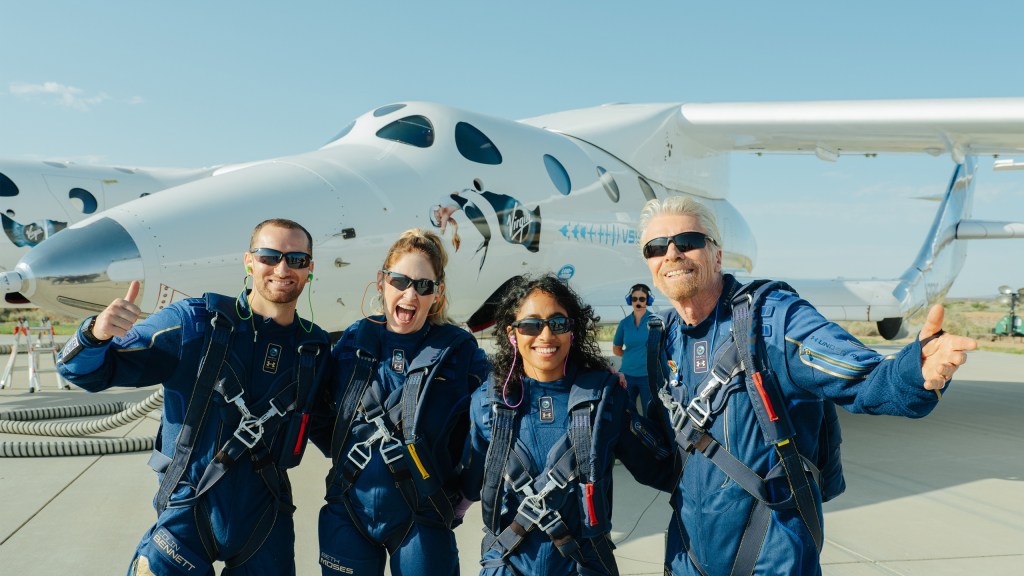






























Comment